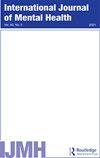‘Family stigma’ among family members of people with mental illness in Indonesia: A grounded theory approach
IF 1.7
Q3 PSYCHOLOGY, CLINICAL
引用次数: 7
Abstract
Abstract Stigma is of central importance to people with mental illness and their families. It impacts how they experience their illness and access available health services. An important principle in mental healthcare is empowering patients to live independently and productively, which requires optimal caring from family members. Stigma can seriously hinder this principle. This qualitative study was based on Straussian grounded theory. Participants were 25 family members of people with mental illness. Data were collected through semi-structured interviews, field notes and memos, and managed using Paillé data analysis. We extracted four interrelated categories: pasung (confinement), demonic/devil possession, alternative treatments and social isolation. Because of misunderstandings about mental illness, participants turned to alternative treatments provided by shamans and religious leaders. Participants reported being expelled from or isolated by their community, suggesting stigma is a reality experienced by families of people with mental illness in Indonesia. Addressing family stigma is important to ensure on-going support for patients and families. It is also important to develop and evaluate anti-stigma interventions in the Indonesian context. The present findings are relevant for mental healthcare professionals, related practice areas where families may be exposed to stigmatization and for international audiences with similar cultural and religious contexts.印尼精神病患者家庭成员的“家庭污名”:一种有根据的理论方法
摘要污名对精神疾病患者及其家人来说至关重要。它影响他们如何体验自己的疾病和获得可用的医疗服务。心理健康的一个重要原则是赋予患者独立和富有成效的生活能力,这需要家庭成员的最佳照顾。污名会严重阻碍这一原则。这项定性研究是基于斯特劳斯的基础理论。参与者是25名精神病患者的家庭成员。数据是通过半结构化访谈、现场笔记和备忘录收集的,并使用Paillé数据分析进行管理。我们提取了四个相互关联的类别:监禁、恶魔附身、替代治疗和社会孤立。由于对精神疾病的误解,参与者转向萨满和宗教领袖提供的替代治疗。参与者报告称,他们被社区驱逐或隔离,这表明印尼精神病患者的家庭正在经历耻辱。消除家庭污名对于确保持续支持患者和家庭非常重要。在印度尼西亚背景下制定和评估反污名干预措施也很重要。目前的研究结果与心理健康专业人员、家庭可能遭受污名化的相关实践领域以及具有类似文化和宗教背景的国际受众有关。
本文章由计算机程序翻译,如有差异,请以英文原文为准。
求助全文
约1分钟内获得全文
求助全文
来源期刊

INTERNATIONAL JOURNAL OF MENTAL HEALTH
PSYCHOLOGY, CLINICAL-
CiteScore
3.80
自引率
20.00%
发文量
32
期刊介绍:
The official journal of the World Association for Psychosocial Rehabilitation, the International Journal of Mental Health features in-depth articles on research, clinical practice, and the organization and delivery of mental health services around the world. Covering both developed and developing countries, it provides vital information on important new ideas and trends in community mental health, social psychiatry, psychiatric epidemiology, prevention, treatment, and psychosocial rehabilitation.
 求助内容:
求助内容: 应助结果提醒方式:
应助结果提醒方式:


